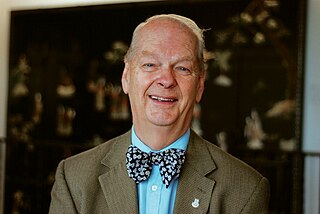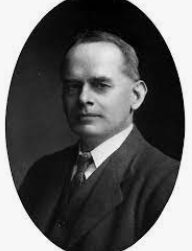
Pathology is the study of disease and injury. The word pathology also refers to the study of disease in general, incorporating a wide range of biology research fields and medical practices. However, when used in the context of modern medical treatment, the term is often used in a narrower fashion to refer to processes and tests that fall within the contemporary medical field of "general pathology", an area that includes a number of distinct but inter-related medical specialties that diagnose disease, mostly through analysis of tissue and human cell samples. Idiomatically, "a pathology" may also refer to the predicted or actual progression of particular diseases, and the affix pathy is sometimes used to indicate a state of disease in cases of both physical ailment and psychological conditions. A physician practicing pathology is called a pathologist.

Anatomical pathology (Commonwealth) or anatomic pathology (U.S.) is a medical specialty that is concerned with the diagnosis of disease based on the macroscopic, microscopic, biochemical, immunologic and molecular examination of organs and tissues. Over the 20th century, surgical pathology has evolved tremendously: from historical examination of whole bodies (autopsy) to a more modernized practice, centered on the diagnosis and prognosis of cancer to guide treatment decision-making in oncology. Its modern founder was the Italian scientist Giovanni Battista Morgagni from Forlì.

Forensic pathology is pathology that focuses on determining the cause of death by examining a corpse. A post mortem examination is performed by a medical examiner or forensic pathologist, usually during the investigation of criminal law cases and civil law cases in some jurisdictions. Coroners and medical examiners are also frequently asked to confirm the identity of remains.
The Council for British Archaeology (CBA) is an educational charity established in 1944 in the UK. It works to involve people in archaeology and to promote the appreciation and care of the historic environment for the benefit of present and future generations. It achieves this by promoting research, conservation and education, and by widening access to archaeology through effective communication and participation.

The Philological Society, or London Philological Society, is the oldest learned society in Great Britain dedicated to the study of language as well as a registered charity. The current Society was established in 1842 to "investigate and promote the study and knowledge of the structure, the affinities, and the history of languages". The society publishes a journal, the Transactions of the Philological Society, issued three times a year as well as a monographic series.

Sir Harry Brookes Allen was an Australian pathologist.
The American Society for Bone and Mineral Research (ASBMR) is a professional, scientific and medical society established in 1977 to promote excellence in bone and mineral research and to facilitate the translation of that research into clinical practice. The ASBMR has a membership of nearly 4,000 physicians, basic research scientists, and clinical investigators from around the world.
The American Physiological Society is a non-profit professional society for physiologists. It has nearly 10,000 members, most of whom hold doctoral degrees in medicine, physiology, or other health professions. Its mission is to support research and education in the physiological sciences. The society publishes 16 peer-reviewed journals, sponsors scientific conferences, and sponsors awards to further this mission.

Juan Rosai was an Italian-born American physician who contributed to clinical research and education in the specialty of surgical pathology. He was the principal author and editor of a major textbook in that field, and he characterized novel medical conditions such as Rosai-Dorfman disease and the desmoplastic small round cell tumor. Rosai is also well-known because of his role as teacher, mentor and consultant to many American and international surgical pathologists.
The Viking Society for Northern Research is a group dedicated to the study and promotion of the ancient culture of Scandinavia. Founded in London in 1892 as the Orkney, Shetland and Northern Society or the Viking Club, its name was changed in 1902 to the Viking Club or Society for Northern Research, and in 1912 to its present name. Its journal, Saga-Book, publication of editions, translations, and scholarly studies, and since 1964 the Dorothea Coke Memorial Lectures, have been influential in the field of Old Norse and Scandinavian-British Studies.
The Journal of Pathology is a peer-reviewed medical journal that was established in 1892 as The Journal of Pathology and Bacteriology by German Sims Woodhead. It has been the official journal of the Pathological Society of Great Britain and Ireland since its foundation in 1906. The journal has published important papers in pathology and experimental medicine including work by Rudolf Virchow and Ilya Ilyich Mechnikov, both of whom contributed to the inaugural issue. In 1969, the journal's title was shortened to The Journal of Pathology. In January 1999, the first of an ongoing series of Annual Review issues was published, on the topic of "Molecular and Cellular Themes in Cancer Research", edited by Peter A. Hall and David P. Lane. A history of the journal was written in 2006 by former editor-in-chief C. Simon Herrington, as a chapter of a book on the history of the Pathological Society.

Air Marshal Sir Harold Edward Whittingham was a British physician notable for a distinguished medical career in the Royal Air Force and contributions to Aviation medicine. After graduating from the University of Glasgow, he was the first pathologist and Assistant Director of Research at the Beatson Institute for Cancer Research in Glasgow.
The American Society for Investigative Pathology (ASIP) is a society of biomedical scientists who investigate mechanisms of disease. ASIP membership includes scientists in the academic, government, hospital, and pharmaceutical arenas that focus their research on the pathogenesis, classification, diagnosis and manifestations of disease. Research findings are ultimately used in the understanding, diagnosis and treatment of human diseases. The word pathology is derived from the Greek word "pathos" meaning "disease."
The Histochemical Society (HCS) is an academic society that was founded on March 24, 1950 at a meeting organized by Ralph D. Lillie of the National Institutes of Health. The idea for the Society arose during the 1949 Biological Stain Commission meeting at which a symposia encompassing anatomy, cytology, pathology and biochemistry was proposed by Lillie, Charles Leblond and Edward Dempsey. Lillie became the first editor of HCS's journal, Journal of Histochemistry and Cytochemistry.

David Francis Hardwick MD, FRCPC, FCAP was a Canadian medical academic and researcher in the field of paediatric pathology. Hardwick was involved with The University of British Columbia (UBC) for more than sixty years as a student, professor, and Professor Emeritus. His research included the first description of histopathologic implications of differential survival of Wilms' Tumors to pathogenesis of L-methionine toxicity and administrative/management research.

Arthur Max Barrett, MD was a university morbid anatomist and histologist at the University of Cambridge, and an honorary consulting pathologist to the United Cambridge Hospitals and to the East Anglian Regional Hospital Board. He wrote numerous works, often cited in medical literature. The Barrett Room at Addenbrooke's Hospital is named in his honour, as is a Prize for the undergraduate Part II Pathology Tripos at the University of Cambridge. He was the father of Syd Barrett, a founding member of the band Pink Floyd.
The Mineralogical Society of Great Britain and Ireland was founded in 1876. Its main purpose is to disseminate scientific knowledge of the Mineral Sciences (mineralogy) as it may be applied to the fields of crystallography, geochemistry, petrology, environmental science and economic geology. In support of this vision, the society publishes scientific journals, books and monographs. It also organizes and sponsors scientific meetings, and the society connects with other societies which have similar scientific interests. Some of these other societies are the International Mineralogical Association, the European Mineralogical Union, the Mineralogical Society of America, the Mineralogical Association of Canada, the Geological Society of London, IOM3, the North of England Institute of Mining and Mechanical Engineers and the Microbiology Society.

Joseph Godwin Greenfield, was an early neuropathologist. He created, with 28 founding members, the neuropathological club, which would eventually become the British Neuropathological Society. Greenfield served as pathologist at the National Hospital for Neurology and Neurosurgery at Queen Square.
The West African College of Physicians is a professional society, founded in 1976, for medical specialists in the West African sub-region. The association promotes postgraduate specialist training, professional curriculum development and fellowship certification in six sub-specialties or faculties, Community Health, Family Medicine, Internal Medicine, Paediatrics, Psychiatry and Laboratory Medicine, specifically concentrations in Anatomical Pathology, Chemical Pathology, Haematology and Medical Microbiology. The College also serves as a health policy advisor to many participating governments in West Africa.

Charles Powell White F.R.C.S. was an English pathologist and cancer researcher.











